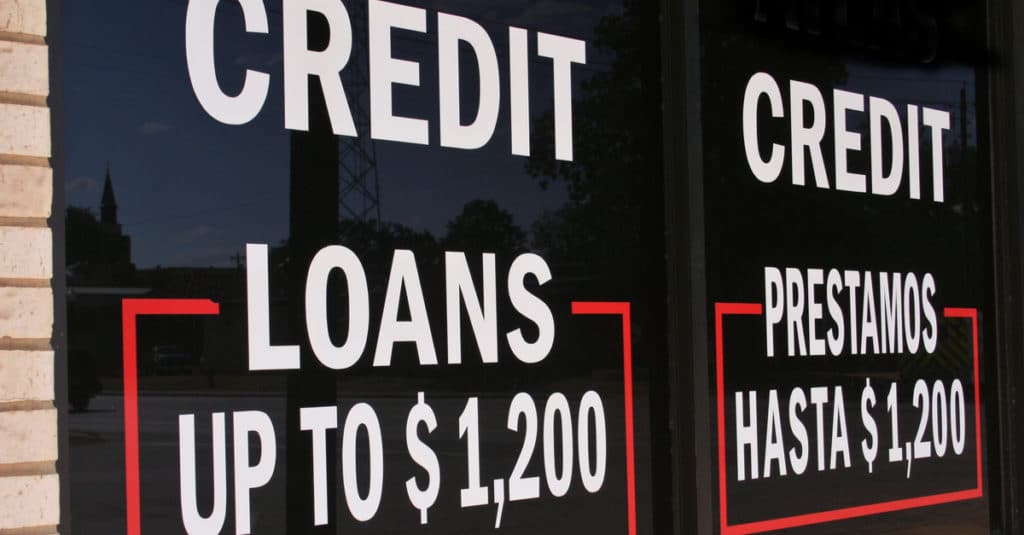Payday loan requirements are relatively lax, but there are still a few requirements.
If you aren’t sure whether you’re eligible for a payday loan, here’s what you need to know.
Table of Contents
Our take
- You must be age 18 with a valid ID, proof of income and an active checking account
- Active-duty military service members may not be eligible
- Some payday lenders require a Social Security number
- It will be tough to get another payday loan if you already have one unpaid payday loan
Do you have multiple payday loans?
DebtHammer helps break the borrowing cycle.
Who qualifies for payday loans?
Payday loan underwriting requirements are minimal. Unlike traditional financial institutions, payday lenders don’t require a credit check, so borrowers with bad credit will still be approved – even people who have been turned down for more traditional loans.
All you need is:
- A bank account
- Pay stubs (or other proof of steady income)
- Valid identification
- Be age 18 or up
Some — but not all — payday lenders may also require a Social Security number.
How payday loans work
A payday loan application can be approved within minutes and you can have your money by the next business day. But the ramifications of a single short-term loan can last for years. One in five payday loan borrowers end up defaulting on their loans.
Nearly 12 million Americans fall victim to the payday loan debt cycle each year. The cycle of debt is so dangerous that the loans are illegal in many states.
Pro tip: These small loans seem harmless. But they’re actually very dangerous because they have to be repaid in full in two weeks, and the annual percentage rates charged by lenders are extremely high. Most borrowers can’t afford to repay the full amount when their next paycheck rolls around. The debt is compounded with high-cost loan rollovers with new finance charges.
Most payday loan borrowers are financially vulnerable people who live paycheck to paycheck, have no savings account or credit card and don’t qualify for better loan options.
READ MORE: Payday loan pros and cons
A steady job is not necessarily required
Payday loan requirements are very basic. Your credit score doesn’t matter. You don’t even technically need to be employed, as long as you have a steady income like Social Security. It’s even possible to get a payday while you’re on unemployment.
As long as you’re 18 or older with a valid ID, there are only two things you need to qualify: A bank account and proof of steady income. This means you will still qualify even if your income is not from a traditional job. This can include alimony, child support, unemployment benefits, freelance work, etc.
Pro tip: In other words, almost anyone who has a job will qualify for a payday loan.
The reason you need a bank account? Payday lenders will give you two options:
- Set up your payment to automatically debit your loan balance on the due date
- Provide a post-dated check that is cashable on your next payday
If the money isn’t in your bank account when the loan comes due, it can cause expensive overdrafts.
Repayment in two weeks is very difficult. Many borrowers have to get another payday loan (called a rollover) and end up trapped in a cycle of debt.
READ MORE: Payday loan interest rates
Pro tip: Beware of any lender that issues title loans and offers check cashing services. Even though it may not refer to itself as a payday lender, it could be issuing payday loans in disguise.
READ MORE: How to get out of payday loan debt
Nine reasons a payday loan application may be denied
In some cases, payday lenders deny loan applications. This usually happens when the applicants:
- You aren’t able to show proof of income
- You earn less money than the required minimum
- You don’t have a steady income (like independent contractors or temporary workers)
- State laws prohibit payday loans in your state
- You don’t have a checking account
- You already have past-due payday loans
- You don’t have U.S. citizenship
- You’re younger than 18 (or, in some cases, 21)
- You’re an active-duty military service member and/or their family
Active-duty military servicemembers and their dependents may be turned away by payday lenders even though they meet all of the requirements. That’s due to the Military Lending Act, which is intended to protect military members from high-interest-rate loans – like payday and title loans. It caps payday loan interest rates at 36%. Because of this, some lenders won’t issue loans to military servicemembers at all.
READ MORE: Payday loan interest rates
Pro tip: Most denied loan applications occur because the lenders aren’t sure they will get paid on time. For example, people without an active checking account can’t write a post-dated check for the loan amount plus fee, which is an essential requirement with most lenders, or set up their account to be automatically debited at payday.
READ MORE: How to pay off multiple payday loans
Federal payday loan requirements
The Consumer Financial Protection Bureau (CFPB) enforces some consumer protections against predatory lenders. Still, there aren’t many federal payday loan laws in place, and the rules that have been implemented have become weighed down by partisan politics.
In 2017, the Obama administration issued rules requiring payday lenders to assess borrowers’ ability to repay their loans, limiting repeated attempts to collect overdue loans from borrowers’ bank accounts. However, under the Trump administration’s leadership, the Consumer Financial Protection Bureau indefinitely delayed implementing the mandate to assess borrowers’ ability to repay. It left the second provision in place.
According to data from OpenSecrets, the payday lending industry has collectively given members of the Senate Banking, Housing and Urban Affairs Committee and the House Committee on Financial Services over $3.4 million during their terms.
Stakes in this issue are very high. According to the Washington Post, the Supreme Court is currently weighing a lawsuit that could determine the CFPB’s fate after a lower court ruled in favor of payday lenders last year, determining that the bureau’s funding is unconstitutional because its money comes not from Congress but the Federal Reserve. This means the only agency with the authority to rein in dangerous lenders is at risk of being disbanded.
READ MORE: Payday loan consolidation: How to get relief that works
Other types of loans to consider instead
- Cash advance apps
- Installment loans
- Personal loans
- Payday Alternative Loans (these are only available through credit unions)
READ MORE: Guide to consumer credit counseling
The bottom line
Even if you meet the minimum payday loan requirements, there are still better ways to borrow money. Don’t turn to a payday lender unless you’re completely out of other options.


